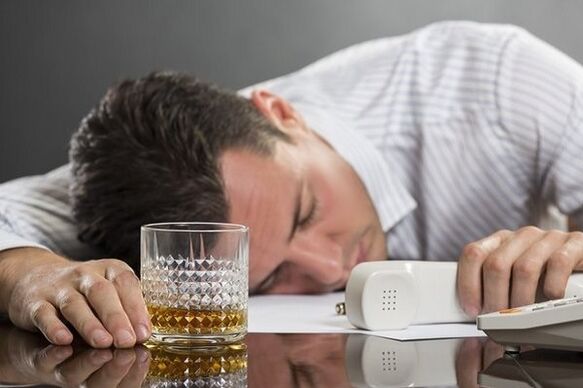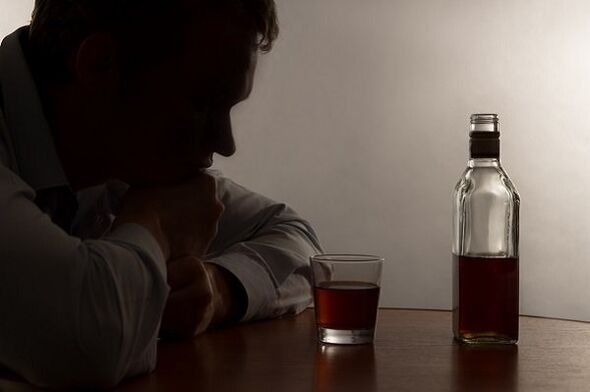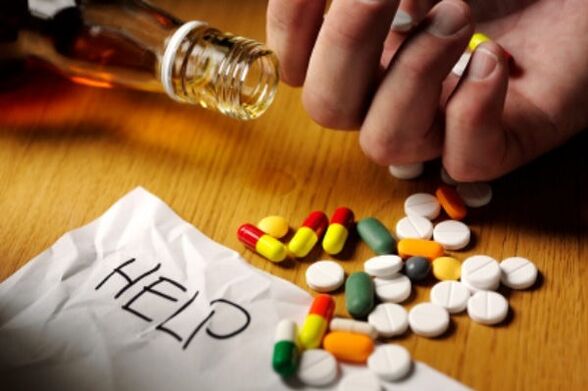People who drink and their relatives believe that stopping drinking suddenly is much better and more accurate than letting go of bad habits step by step. Such methods do not work equally effectively for everyone, and then people ask how to stop drinking gradually, causing minimal damage to health?
Is it possible to stop drinking suddenly
After deciding to stop drinking alcohol abruptly, drunks often fail, once again returning to their addiction. Moreover, dependence on alcohol only becomes stronger, as the body, having suddenly stopped receiving regular ethanol, tries to store it for future use.
People who have been drinking for a long time are so accustomed to the effects of alcohol on the body that a sharp rejection brings them not only an unpleasant sensation, but also ties it even more to the bottle when they stop. Also, often attempts to break away from addiction affect a person’s physical and mental state, exacerbating it. Yet alcoholism is not a desire to drink, but an addiction that forms to some degree, and a sudden neglect that leads to bad consequences.
Important!It is possible to stop drinking alcohol abruptly if the addiction lasts less than a year.

People with long -term alcoholism will never be able to let go of the "green snake" once. Their casting should be done gradually, and ideally under the supervision of a narcologist. This is due to the fact that with a sharp rejection of habits, chronic illness can worsen, mental problems that did not exist before will develop. To avoid feelings of negative rejection becoming an excuse to drink alcohol again, control by a physician, support from relatives and friends, and the use of gradual rejection techniques rather than a sharp parting with addiction are required. Tools that are sold freely on the Internet also help in this regard.
What changes will happen in the body
After giving up alcohol for the first time, the feelings in a person are subjectively unpleasant. This is due to the negative effects of ethanol on the body, as well as the fact that the drunkard has not yet restored his health.

In the first weeks from the time of rejection, a person may feel hopeless, often get sick, and experience depression. Such a reaction is explained by a decrease in immunity and the fact that the body has not yet adapted to the new situation and is trying to return everything to normal. People in this period tend to take the bottle again, convinced that this is better than always being sick.
Important!In the beginning, there must be someone next to the alcohol container who can provide psychological support to him and explain that health will return to normal once the body removes the toxins completely.
When the crisis is over and the body recovers, the former drunk will feel better and be able to even realize it. Improvements will appear in:
- increase the body's defenses;
- improve skin condition;
- improve memory;
- stability in the work of the heart and blood vessels;
- normalization of digestive and urinary processes.
Alcoholics do not experience an immediate improvement in their general condition once they stop drinking. It takes time for the body to overcome addiction. You must remember this and do not expect quick results.
Alcohol withdrawal syndrome
Drunkards often refer to their fear of alcohol intake while maintaining their desire to drink. What is it, and how to stop drinking alcohol so that this kind of unpleasant complication does not develop?
Withdrawal is the normal response of the human body to the sudden rejection of something. In the case of alcoholism, it manifests itself especially in dangerous conditions such as delirium.

The tremor of delirium is expressed in the fact that a few days after refusing to drink, a person loses control of himself. In this case, the following symptoms may appear:
- insomnia;
- panic attacks;
- hallucinations;
- lively.
In situations such as psychosis, the former alcoholic poses a serious danger not only to himself, but also to those around him. The symptomatology develops mainly in the evening and morning, while the person is calm during the day and night.
It has been shown that alcoholic psychosis develops mainly in drinkers, who have long been drinking alcohol and left it abruptly.
With the gradual abandonment of frequently consumed harmful products, withdrawal syndrome is rare. This is another reason to tie step by step with the "green snake".
Gradual failure is the key to success
If you drink for a long time and can no longer imagine yourself without a bottle of beer or a glass of vodka, then the doctor recommends seeking specialized help. The narcologist, to whom the patient is coming, realizing that he has a problem, will give recommendations on the gradual rejection of alcohol.
Gradually stopping drinking is the best option for chronic drunkards. At the same time, it becomes possible to combine various methods of treatment for addiction, starting from medication and ending with psychotherapy sessions.
Gradual failure consists of several stages.
- First, one must accept the existence of the problem and be prepared to face it. This stage is one of the most difficult, as alcoholics often do not consider themselves ill with anything.
- Second, you need to overcome pride and seek medical help. This level is also difficult for someone with an addiction, as this means acknowledging that they have a weakness that they must overcome.
- Third, it is necessary to begin a consistent and gradual struggle. To do this, you should follow the doctor's recommendations, avoid drinking companies, radically change your lifestyle.

If a person stops drinking gradually, they tend to overcome their addiction forever. In this case, the body successfully adapts to the change, gets rid of accumulated toxins, forms new positive habits to replace the old negative ones.
A gradual refusal to drink alcohol is an option for people whose addiction has already entered a chronic stage, when it is impossible to stop drinking abruptly. With such a method of breaking up with addiction, medical advice, a positive attitude and perseverance, as well as support from loved ones will be sorely needed. The more responsible a person is about the need to stop drinking, the higher his chances of success.































